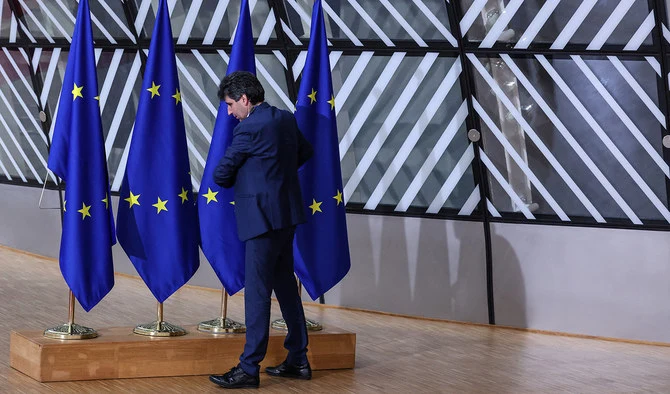GSP plus status has been the talk of the week in Pakistan. Unfortunately, it is not for a good reason. A right-wing Swedish politician who is also a part of European Conservatives and Reformists Charlie Weimers, presented the bill in European Union to review the GSP plus status of Pakistan. With all this on media, questions are mounting at the public end regarding what GSP plus status is. Additionally, why is the case under review and what impact can it have on Pakistan?
GSP Plus Status
Before we understand what GSP plus is, we need to know what GSP is. GSP stands for Generalized Scheme of Preference. Introduced in 1968, as The Generalized System of Preferences or GSP System. The General Agreement on Tariffs and Trade (GATT) introduced this scheme. This scheme allows the developing or poor economy countries to evade tariff or export tax in European Union. It applies to the products that the EU imports from them. The standard GSP lashes maximum or full tariff on imports to EU, but GSP+ provides a full cut in import duties. GSP+ is provided to vulnerable economies in return for the implementation of 27 international rules and regulations in the recipient country. These rules are related to human rights, governance, and labor rights.
Acquisition of GSP+ by Pakistan
Pakistan acquired this status in December 2013. A majority of 406 votes passed in favour of Pakistan to receive the GSP+. On the contrary, 186 votes counted against the passing of the bill. After 2017, the status was renewed. Recently in 2020, it was announced that GSP+ was further extended to 2022. However, when Charlie Weimers presented the resolution and it got passed with a heavy majority. A possibility is that we might see a different approach towards this extension now.
Countries from South Asia with GSP+ Status
Sri Lanka is the only country in South Asia other than Pakistan that received the GSP+ status. Surprisingly, it is not the second to Pakistan. Sri Lanka acquired its GSP status in 1971. Later on, in 2010, the authorities suspended Sri Lanka’s GSP status.
The suspension was actually based on the investigation that started in 2008 and ended in 2009. The investigation that required immense effort to be compiled, concluded that the Sri Lankan government failed to implement three UN Human Rights conventions. These include Civil and Political Rights, Convention Against Torture, and Rights of the Children.
Though it reacquired its position in 2017, it was not an easy process. The initial suspension was of 6 months and was further extended to clearly point out the flaw. However, later on, the government was busy in post-war recovery and was blamed for not showing interest. Nonetheless, when a new government of Maithripala Sirisena came back in 2015, they revived the talks and acquired the status in 2017.
Moreover, the Sri Lankan government shifted to standard GSP in 2009. It caused a heavy loss of almost $786million to the Lankan textile export. This depicts why GSP+ is important, not only for Sri Lanka but also for Pakistan.
Reason Behind the Decision to Review
Earlier in April, Pakistan saw violent riots all over the country, conducted by an extremist group of Tehreek-e-Labaik Pakistan. It was to expel the French Ambassador from the country over blasphemous remarks made by French President Emmanuel Macron. It raised the eyes and ears of the EU and especially of France, which called for actions against it.
Charlie Weimers is a renowned right-wing Swedish politician. Pakistan’s access to GSP+ status was sanction under his command. The main reasons that he put forward were;
- The violence against minorities in Pakistan by right-wing extremist groups, especially against the Christian community (as Charlie mentioned)
- He accused Prime Minister Imran Khan of equating denial of the holocaust to criticism of Islam’s Prophet. He also mentioned that PM Khan did not defend the victims of the ‘violence against minorities.
Keeping in view these points, Charlie has called for the removal of Pakistan from the list of countries enjoying GSP+ status. Charlie is infamous for having an anti-Islamic, or Islamophobe approach. He is open about his harsh critics and calls for strict laws to contain ‘Islamism’ in Europe, particularly, Sweden.
Impact – If Pakistan Loses GSP+ Status
The GSP plus status allowed around 20 per cent of Pakistani exports to enter the EU market at zero tariffs and 70 per cent at privileged rates. GSP+ enabled Pakistan to export more than US$1 billion worth of products to the international markets, with the textile industry earning profits of more than Rs1 trillion per year. It also increased Pakistan’s export by $2 billion. Pakistan’s exports to the EU increased from 4.538 billion euros in 2013 to 7.492 billion euros in 2019, almost an increase of 65 per cent.
With such good figures, it requires little to imagine that economic loss after losing GSP+ would be immense. Especially in the textile industry, which recently started to flourish.
Reconstruction Opportunity Zones
Additionally, it is noteworthy, at a time when the EU is considering reviewing Pakistan’s GSP+ status, a bill for the Reconstruction Opportunity Zones (ROZs) has been introduced in the United States Senate. In 2009, the authorities presented the bill for the first time. The then-Vice President Joe Biden endorsed it. However, besides the fact that the House of Representatives passed the law, no other substantial implementation took place. Aimed at the establishment of ROZs in Pakistan and Afghanistan border regions, it will allow certain products; textile and clothing, from these areas to enter the U.S. duty-free – without having any tariff imposed on them.
However, the bill entailed eligibility criteria that Pakistan and Afghanistan have to fulfil to be designated for ROZ. These include market economy, increasing education, healthcare,anti-corruption measures, human rights, labour standards, and ensuring to avoid actions that may harm the US interests.
Moreover, the bill would require the President of the United States to approve the products for duty-free treatment. He shall determine that member states have adopted laws to curb unlawful transhipment and allow US customs to carry out investigations.
PM Imran Khan Response
Considering that European Parliament will review Pakistan’s GSP+ status, on Monday, Prime Minister Khan held a meeting with ambassadors of OIC members at PM house. In the meeting, the Prime Minister made it clear that there will be ‘no compromise’ on the finality of Prophet Muhammad (S.A.W). Furthermore, the government has refused to repeal the Blasphemy Law. Also, he earlier held a meeting with ministers to formulate a comprehensive response to the EU on GSP+ status, freedom of expression, blasphemy law, and minority law.
Pakistan and the Region
Hence. determining how the renewed call for a 2009 bill after a whole decade will be perceived by Pakistan when GSP+ status has become controversial will definitely influence both the geopolitics and the geoeconomics of the region.
Moreover, this renewal of a 2009 bill is interesting as it depicts what the US intends for the post-withdrawal scenario. Besides it also indicates the extent of US presence in the region. How the inclusion of Pakistan in a trade framework shifts regional politics and how further this bill would materialize, will be interesting to note.
With the GSP+ still to be reviewed, will PM Khan and his government take any steps to retain the status? Only time would tell.
Muhammad Abdullah Kayani is a budding scholar with a keen interest in current affairs and news reporting. With a passion for uncovering and analyzing events shaping our world, he aims to inform and engage audiences through insightful commentary and diligent reporting.



![Afghan refugees arrive at the Torkham border crossing in Pakistan to cross over into Afghanistan on November 2, 2023 [Image via Al Jazeera]](https://southasiatimes.org/wp-content/uploads/2022/11/Afghan-refugees-arriving-at-the-Torkham-Border-crossing-1699011483-150x150.webp)
![Sri Lankan protesters storm PM Ranil Wickremesinghe 's office, demanding he resign [Rafiq Maqbool/AP]](https://southasiatimes.org/wp-content/uploads/2022/04/383712639-150x150.webp)
Add a Comment